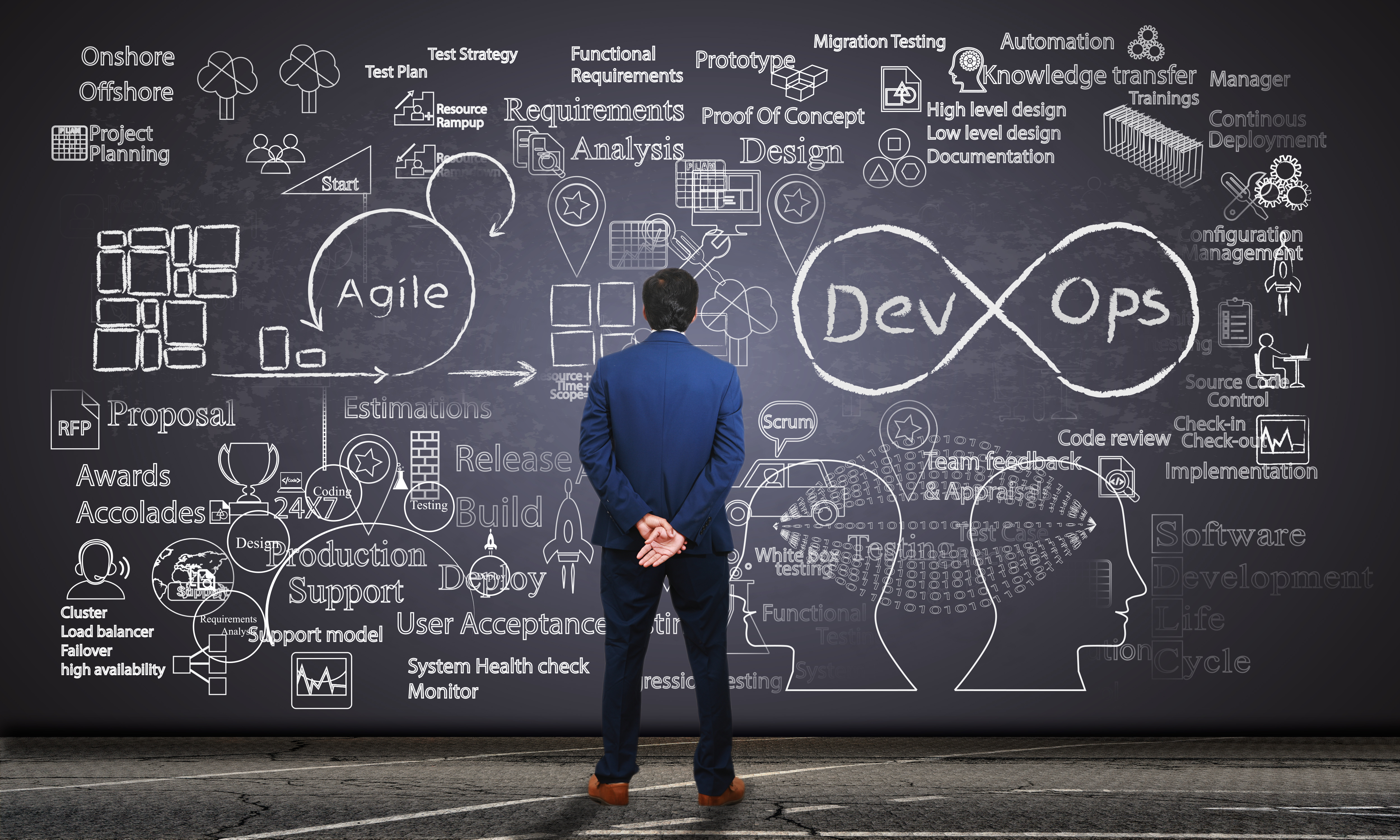In this digital era, new terminologies like DevOps, DevSecOps, and DevContentOps are trending. But the term ‘TechOps’ has been around for quite a few years now. Now we all know DevOps is a culture that aims to save organizations their time and extra costs through seamless collaboration between TechOps and product development.
TechOps is nothing but a traditional role of a sysadmin. It aims to monitor and run systems that are already developed, so they don’t really work on building them. The objective of TechOps is to look after capacity management, incident reports, infrastructure planning, support tasks, and monitoring of systems. Along with that, it also encompasses review and up-gradation of internal network problems. In short, TechOps is a discipline, whereas DevOps is a culture.
TechOps acts as a building block to create a newer and better DevOps strategy.
The real question is, how is TechOps different from DevOps? And, what does a TechOps engineer really do?
Let's see...
What Is TechOps?
By definition, TechOps (also referred to as ITOps) is the process of maintaining and delivering all the applications, technologies, services, and infrastructure that run the IT-based product or service. TechOps covers the job roles of a system administrator, IT service desk, and network administrator. These people are generally responsible for delivering IT upgrades and supporting the entire IT tech stack.
TechOps is meant to monitor, test, and run an already built system in a traditional IT stack.Their job often includes automating processes that involve error reporting or bug testing, rebooting a crashed server, and so on. Their tasks do not rely upon the production team.
Objectives and Processes Involved in TechOps
TechOps does not include the building or development of systems, applications, and software. Neither does it handle the implementation of software. TechOps executes every required role excluding software development. The main objective for TechOps is to install and maintain networking, manage data centers, help desks, devices, servers, and storage.
Here are the different functions that TechOps generally covers:
- Network infrastructure: TechOps installs and maintains functions of internal as well as external networks. It secures an organizational network by ensuring it complies with the regulatory standards. It provides remote access to the network users via two-factor authentication and VPNs.
- Operations and help desk: TechOps handles physical data centers including components like battery backups, equipment location, electricity, cooling systems, and more. In case of natural disasters or incidents, TechOps helps with data recovery. Plus, it also looks after data backups. Often, organizations have to report to third parties such as regulatory agencies and auditors. In such circumstances, TechOps handles network configuration and security. It creates and maintains the infrastructure library and IT help desk.
- Device and Service Management: TechOps manages the IT network along with the storage of every user to ensure optimal disk, backup, memory, and archiving. TechOps often looks after the configuration, maintenance, upgrading, and patching needs of network applications or infrastructure. Besides, TechOps can also set up a device and help users fix or update their devices.
On the contrary, DevOps monitors and tests products as they are built. It seamlessly bridges the gap between TechOps and product development departments. Many of us wonder about TechOps vs DevOps, how they differ. Well, DevOps uses TechOps as a fundamental step to start the project. In DevOps, both teams collaborate together to accelerate the delivery pipeline and ensure quality by leveraging automation.
What Does a TechOps Engineer Do?
The TechOps Engineer is responsible for the seamless operation of software from an infrastructure, application, and security perspective.
Roles and Responsibilities of a TechOps Engineer
Some of the main roles and responsibilities of a TechOps Engineer are as follows:
- Identify application problems by finding the root cause.
- Bridge the gap between internal and external teams to resolve issues.
- Support software development team to employ infrastructure changes or upgrades. Bridge the gap between the development team and infrastructure providers to resolve issues.
- Monitor and maintain the availability and good health of business-critical applications and systems.
- Ensure optimal performance of all software environments within a cloud infrastructure.
- Conform to regulatory standards and implement security measures throughout the organizational assets.
- Consistently validate security policies of systems to make sure they are available, secure, and updated at all times.
- Review existing security processes and employ new technologies to keep up with the latest security trends and combat potential threats.
- Periodically run tests to ensure DR (Disaster Recovery) processes are up-to-date.
To summarize, TechOps Engineer’s main role is to offer operational support for ‘on-premise’ service technology, as they’re most knowledgeable to evaluate change requests. And for cloud-based services, a TechOps Engineer is one who has immense expertise in the cloud service and is able to handle major incidents.
Why Do Companies Need a TechOps Engineer?
Organizations need a TechOps Engineer to gain more stability and long-term reliability for the support and maintenance of the existing production environment. They consistently monitor and upgrade your production servers to ensure optimal hardware and software performance.
What Skills Does a TechOps Engineer Need?
To work as a TechOps Engineer, the person needs to have a certain skill set such as:
- Experience in working as a sysadmin or in a DevOps or Site Reliability Engineering role.
- Strong knowledge of Networking Administration, Linux, storage, and databases.
- Experience and knowledge of working with prominent IaaS solutions such as GCP or AWS.
- Experience to work with open-source solutions for service discovery, configuration management, elastic scaling, cloud management, and log management.
- Strong diagnostics, issue-resolving, and interpersonal skills with an operations-oriented mindset.
- Knowledge of software development, system administration, and building automation tools along with expertise in TCP/IP stack.
Get Started as a TechOps Engineer
Now, if you’re wondering how to get started as a TechOps Engineer, here’s how.
A TechOps Engineer must have expertise and experience to handle everything happening in the production servers. Meaning, they need to deeply understand how the products and database operations actually work. TechOps should handle how new software builds are deployed and distributed on the production servers.
Hence, you cannot be a Junior TechOps Engineer!
A TechOps Engineer must have a couple of years’ experience together with a strong understanding of tools and processes to ultimately become a TechOps professional.
The Need for a TechOps Engineer
In the past, IT departments used to work as a single team, but today they are strategically divided into specialized teams with target goals. The ultimate goal of these teams is to efficiently adapt to the evolving technologies. Now, this division critically creates some gaps between the teams in the SDLC.
TechOps, DevOps, and DevContentOps are innovative concepts that help organizations with the seamless collaboration of these IT teams. Besides, it also aims to make companies more secure and agile.
TechOps is a broader notion that acts as a fundamental block to the creation of an even better DevOps culture. Since TechOps revolves around a particular segment, it is more like a discipline or a role rather than a culture. Organizations that want to build a cloud infrastructure with optimal planning, maintenance, and performance must hire a TechOps Engineer.
On the other hand, DevOps is more of a culture and a mindset that bridges the gap between the IT Operations and development teams and aids their seamless collaboration. By the same token, DevContentOps is another innovative methodology that inculcates CMS into the DevOps process. DevContentOps aims to create captivating, content-driven digital user experiences involving the content teams, their modern content-driven tools, and processes in the DevOps lifecycle.

 Hitesh Jethva
Hitesh Jethva




